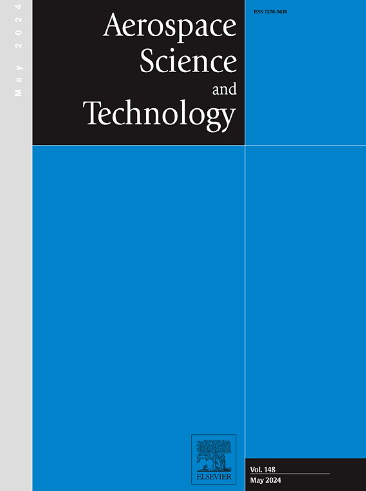Modeling and analysis of performance degradation in proton exchange membrane fuel cell system for aviation applications
IF 5
1区 工程技术
Q1 ENGINEERING, AEROSPACE
引用次数: 0
Abstract
Proton Exchange Membrane Fuel Cell Systems (PEMFCS) are considered an ideal power source for addressing the aviation industry's decarbonization demands. However, their performance adaptability under aviation-specific operational conditions has not been thoroughly investigated or theoretically validated. This study aims to characterize the performance degradation of PEMFCS in aviation environments and explore corresponding regulation strategies to maintain their functionality. A performance degradation model for PEMFCS under aviation conditions was developed and validated through experimental data, demonstrating high simulation accuracy. The study systematically evaluated the impact of aviation environmental factors on PEMFCS performance and quantified its degradation across full-flight operating conditions. Results revealed that during the cruise phase, power decay in PEMFCS leads to insufficient thrust to meet operational demands. To address this issue, humidification and pressurization measures were implemented, reducing maximum performance degradation from 46.28 % to 29.12 % and 3 %, respectively, effectively mitigating power deficits at high altitudes. This research identifies the mechanisms of PEMFCS power insufficiency under aviation conditions and proposes control strategies to maintain performance. The findings provide feasible solutions and quantitative safety assessments, offering critical support for the practical application of PEMFCS in aviation.
航空用质子交换膜燃料电池系统性能退化建模与分析
质子交换膜燃料电池系统(PEMFCS)被认为是解决航空业脱碳需求的理想动力源。然而,它们在航空特定作战条件下的性能适应性尚未得到深入的研究或理论上的验证。本研究旨在表征航空环境中PEMFCS的性能退化,并探索相应的调节策略以保持其功能。建立了航空条件下PEMFCS性能退化模型,并通过实验数据进行了验证,具有较高的仿真精度。该研究系统地评估了航空环境因素对PEMFCS性能的影响,并量化了其在全飞行操作条件下的退化情况。结果表明,在巡航阶段,PEMFCS的功率衰减导致推力不足以满足运行需求。为了解决这个问题,采用了加湿和加压措施,将最大性能下降率分别从46.28%降低到29.12%和3%,有效地缓解了高海拔地区的电力不足。本研究明确了航空条件下PEMFCS功率不足的机理,并提出了保持性能的控制策略。研究结果提供了可行的解决方案和定量安全评估,为PEMFCS在航空领域的实际应用提供了关键支持。
本文章由计算机程序翻译,如有差异,请以英文原文为准。
求助全文
约1分钟内获得全文
求助全文
来源期刊

Aerospace Science and Technology
工程技术-工程:宇航
CiteScore
10.30
自引率
28.60%
发文量
654
审稿时长
54 days
期刊介绍:
Aerospace Science and Technology publishes articles of outstanding scientific quality. Each article is reviewed by two referees. The journal welcomes papers from a wide range of countries. This journal publishes original papers, review articles and short communications related to all fields of aerospace research, fundamental and applied, potential applications of which are clearly related to:
• The design and the manufacture of aircraft, helicopters, missiles, launchers and satellites
• The control of their environment
• The study of various systems they are involved in, as supports or as targets.
Authors are invited to submit papers on new advances in the following topics to aerospace applications:
• Fluid dynamics
• Energetics and propulsion
• Materials and structures
• Flight mechanics
• Navigation, guidance and control
• Acoustics
• Optics
• Electromagnetism and radar
• Signal and image processing
• Information processing
• Data fusion
• Decision aid
• Human behaviour
• Robotics and intelligent systems
• Complex system engineering.
Etc.
 求助内容:
求助内容: 应助结果提醒方式:
应助结果提醒方式:


